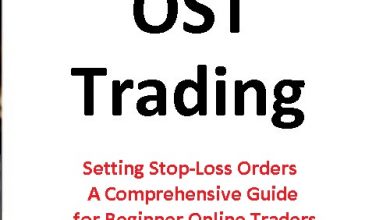The Psychology of Successful Trading: Managing Emotions
The Psychology of Successful Trading: Managing Emotions – The world of trading is not only about analyzing charts and making informed decisions; it is also heavily influenced by human psychology. Understanding and managing emotions is a crucial aspect of successful trading. In this article, we will delve into the psychology of trading and explore strategies to effectively manage emotions for consistent trading success.
1. Fear and Greed
Fear and greed are two dominant emotions that can significantly impact trading decisions. Fear can cause traders to hesitate, miss out on opportunities, or make impulsive decisions based on panic. On the other hand, greed can lead to excessive risk-taking and chasing after unrealistic profits.
Example: A trader may hesitate to enter a trade due to fear of potential losses, missing out on a profitable opportunity. Alternatively, greed may lead a trader to hold onto a losing position for too long, hoping for a reversal that may never come.
2. Emotional Discipline
Emotional discipline is the ability to maintain composure and stick to a trading plan despite emotional fluctuations. It involves self-control, patience, and adherence to predefined rules. Traders with emotional discipline can make rational decisions based on analysis rather than succumbing to impulsive behavior driven by emotions.
Example: A disciplined trader follows their risk management plan by setting stop-loss orders and adhering to position sizing rules, regardless of emotional impulses to deviate from the plan.
3. Mindfulness and Self-Awareness
Mindfulness and self-awareness are key psychological tools for successful trading. Being mindful involves staying present in the moment, focusing on the current trade, and avoiding excessive attachment to past trades or future outcomes. Self-awareness allows traders to recognize and manage their emotions effectively.
Example: A mindful trader stays focused on the current trade without dwelling on past losses or potential future profits, making objective decisions based on the current market conditions.
4. Developing a Trading Plan
A trading plan is a written set of rules and guidelines that define a trader’s strategy, risk tolerance, and goals. Having a well-defined trading plan helps reduce emotional decision-making, as traders can rely on predetermined rules rather than impulsive reactions.
Example: A trading plan may include specific entry and exit criteria, risk management guidelines, and a clearly defined strategy for different market conditions.
5. Seeking Support and Education
Seeking support from fellow traders or joining trading communities can provide valuable emotional support and insights. Education is also essential for understanding the psychological aspects of trading and learning techniques to manage emotions effectively.
Example: Engaging with a trading mentor, participating in trading forums, or attending educational webinars can provide emotional support and help traders learn from the experiences of others.
Conclusion
The psychology of trading plays a significant role in achieving consistent trading success. By understanding and managing emotions such as fear and greed, practicing emotional discipline, cultivating mindfulness and self-awareness, developing a trading plan, and seeking support and education, traders can enhance their psychological resilience and make more rational trading decisions. Mastering the psychology of successful trading is a lifelong journey that can lead to improved trading performance and increased profitability.
Read Also : Understanding Fundamental Analysis in Trading



